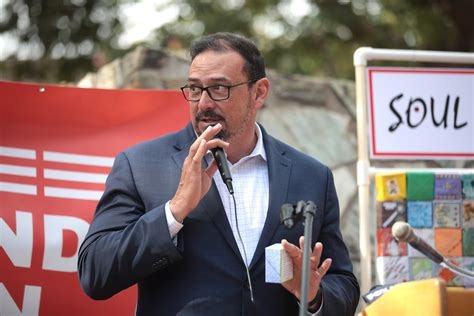A brazen cyberattack on Arizona's election website has thrust Secretary of State Adrian Fontes into the cross hairs of furious lawmakers and activists, who accuse him of presiding over a "massive cover-up" and neglecting basic safeguards that left the state's democratic processes vulnerable to foreign meddling.
The breach, which saw hackers swap candidate photos with images of Iran's Ayatollah Khomeini, has not only disrupted critical pre-election operations but also eroded public trust in an office already strained by outdated technology and evasive leadership.
The intrusion struck on June 23rd, just days after US military strikes on Iranian nuclear sites, a timing that reeks of retaliation from pro-Iranian actors, according to investigators. Hackers exploited a glaring flaw in the Candidate Portal, a public-facing system where politicians upload profiles and photos for the state's election results page. Using a seemingly innocuous image file laced with a Base64-encoded PowerShell script, the attackers commandeered the server, defacing profiles dating back years with politically charged propaganda. Live on the site, voters could see Khomeini's stern visage staring back instead of legitimate candidates, a digital desecration that unfolded mere weeks before a crucial special congressional primary election on July 15th.
Fontes' office detected the anomaly but took over a week to alert the public, issuing a terse July 1st statement that critics slammed as woefully inadequate. The portal was shuttered for seven days, forcing candidates to scramble with manual submissions and password resets amid a chaotic pre-election crunch. No voter data was compromised, thanks to network segmentation, but the episode laid bare the portal's "open window" vulnerabilities: an unpatched legacy system ripe for exploitation, with lax upload controls that invited disaster.
"This should never have happened," fumed State Sen. Jake Hoffman (R-LD15), who branded Fontes' response a "foreign cyberattack cover-up" and demanded a full accounting of affected systems, stolen data, and remedial steps. Turning Point Action COO Tyler Bowyer echoed the outrage, blasting the office for leaving "voters and candidates totally in the dark" and burying the scandal under vague assurances.
Adding insult to injury, Fontes has deflected scrutiny by pointing fingers elsewhere, including complaints about federal cybersecurity coordination. In a private briefing with lawmakers, he griped about "outdated systems" and sought a whopping $10 million one-time infusion plus $3.5 million annually to "modernize" infrastructure, a plea that smacks of too little too late after years of warnings ignored on his watch.
The fallout has rippled beyond Arizona's borders, with cybersecurity experts warning that such lapses could embolden adversaries like Iran, Russia, or China to probe deeper into US elections. Fontes' team mobilized state resources—the National Guard, Arizona Department of Homeland Security, and a private firm—to contain the damage, and the FBI has since joined the fray. Yet, the office's initial sidestepping of fuller disclosure has only amplified suspicions of incompetence. Spokesman JP Martin insists the response was "decisive" and transparent via bipartisan briefings, but skeptics see it as damage control for a preventable fiasco.
As the investigation grinds on, the chorus for accountability grows deafening. Bipartisan lawmakers, candidates sidelined by the outage, and everyday voters deserve answers. How did a routine portal become a hacker's playground? What data, if any, slipped through the cracks? And why has Fontes prioritized finger-pointing over fortifying defenses? With midterms looming, Arizona can't afford another election embarrassment. Fontes must come clean, overhaul his cybersecurity house, and restore faith in the ballot box, or risk proving critics right: that under his stewardship, the state's vote is anything but secure.

